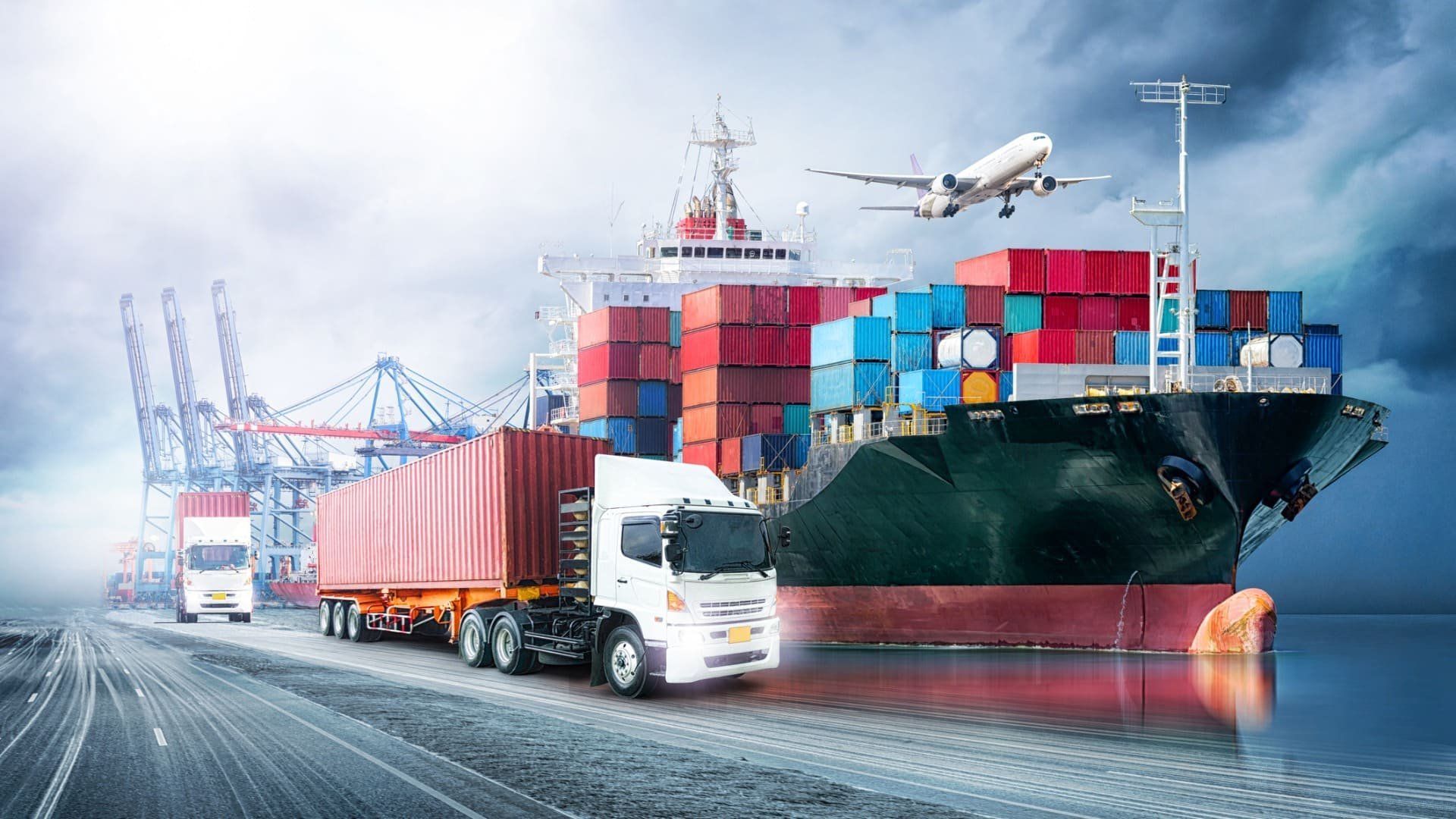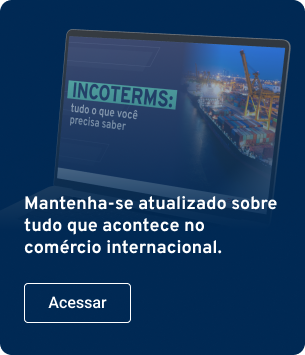Stay up to date with the latest news and articles from the world of logistics
Discover how Allink is transforming the logistics landscape by checking out the knowledge shared by our team of experts below.

International freight plays a crucial role in global logistics, especially for companies involved in international trade. Knowing how to accurately calculate the cost of freight is essential to remain competitive and avoid losses. In this article, you will learn how to create a more accurate international freight quote by considering all the factors involved. What is International Freight? International freight is the service responsible for transporting goods between different countries, following the export and import regulations of each location involved. Unlike domestic freight, international transport involves factors such as distance, customs regulations, and choice of transportation mode, all of which directly affect costs. Additionally, accurate quoting depends on understanding the different modalities and service options available, as outlined below. Main Types of International Freight For a precise quote, it's essential to understand the types of international freight available. They vary depending on the cargo's needs and the type of product being transported: Modal Freight This uses only one mode of transport, such as maritime or air. Maritime transport is the most common due to its cost-effectiveness for large volumes of goods. Air transport, while more expensive, is ideal for urgent deliveries or high-value items. The five main categories are: Rail (locomotives and trains); Road (trucks and other cargo vehicles); Water (ships and boats); Air (airplanes); Pipeline (pipes and tubing). Multimodal Freight This combines different modes of transport, such as air and maritime. This type is recommended when optimizing cost or transit time by leveraging the strengths of each mode is necessary. How Does International Freight Work? To clarify how international freight works, consider the following workflow, which outlines the steps involved in transporting goods from one country to another—from the origin point to the final destination. Cargo Origin: Typically, this is the factory where the goods are produced. Domestic Transport: After a sale, the product is transported internally, usually via road or rail. Customs Clearance: Goods are taken to a customs office near the port or airport for inspection to ensure compliance with export regulations. International Shipping: After customs clearance, the cargo is sent to the port or airport for shipment to another country. Destination Customs: Upon arrival, goods are directed to the buyer's selected customs office for final clearance. Final Delivery: Once cleared, the goods are transported to the recipient. Key Costs in International Maritime Freight When requesting a quote for international maritime freight, the document typically includes terms like: POL: Port of Loading, where the cargo is loaded; POD: Port of Discharge, where the goods are unloaded; Comm: Commodity, referring to the type of goods; TT: Transit Time; Rate OFR: Rate of Ocean Freight, based on weight (W) or cubic meter (m³); Transshipment Charges: Cost for cargo transfer; Docs: Documentation fees; Storage at CFS: Cost of storage at the Container Freight Station, based on weight or cubic meter; BL Fee: Bill of Lading issuance fee; Deconsolidation Fee: Cost for deconsolidating goods; CUC: Chassis Usage Charge; EMF: Equipment Management Fee; ISPS: Security fee for ships and port facilities; BAS: Basic freight rate; ODF: Origin Documentation Fee; OHC: Origin Handling Charge; Capatazias: Terminal handling charges; ALL IN: Total freight cost, covering all listed fees. 11 Items for an Accurate Freight Quote Checklist Exact type of goods; Value of goods; Incoterms; NCM (Harmonized System Code); Origin and destination; Full address with ZIP code (for pickup/delivery); Mode of transport; Delivery deadline; Cargo dimensions (length, width, and height); Gross weight of the cargo; Packaging type. By following this checklist, your quote will be more precise, enabling better cost management for international freight. How to Calculate International Freight Accurately calculating international freight involves multiple factors, including weight, volume, route, and transport mode. Below are key considerations: 1. Cargo Weight and Volume Weight and volume are primary cost determinants. In air transport, weight is often the limiting factor. In maritime LCL (Less-than-Container Load), calculate the cargo's density by multiplying its length, width, and height for total volume. The higher factor (weight or volume) determines the rate. For FCL (Full Container Load), the cost is per container, regardless of usage. 2. Transport Mode Choose the mode based on cargo characteristics. Bulky shipments often favor maritime transport, while lightweight, high-value goods may require air transport. Consider delivery deadlines, material type, and urgency. 3. Additional Costs and Fees Logistics involve various additional charges, including customs fees, depending on origin and destination regulations. 4. Incoterms and Responsibilities International Commercial Terms define buyer and seller responsibilities, impacting freight costs. There are 11 Incoterms divided into four groups: Group C (CPT, CIP, CFR, CIF); Group D (DAP, DPU, DDP); Group E (EXW); Group F (FCA, FAS, FOB). How to Request an International Freight Quote Look for a reliable freight forwarder, customs broker, or trade consultant. Research their reputation online. Request a detailed quote, including transit time, service frequency, and next departures. Avoid falling for the lowest price without checking service reliability. When comparing quotes, ensure you compare equivalent terms and services.

Freight Forwarders and Customs Brokers often encounter issues during the LCL freight quotation process. These problems arise from frequently asked questions that can be addressed clearly and objectively. As we dive into the nuances of LCL Freight Quotation, we not only uncover the necessary procedures and documents but also answer the most frequently asked questions that arise in this process. What is an LCL Freight Quotation? In the realm of maritime transport, the LCL Freight Quotation stands out as a crucial tool for freight forwarders and customs brokers. This process essentially refers to requesting prices for the international transport of goods in the LCL modality, where the cargo does not fill an entire container and is consolidated with goods from other exporters in the same container. Key Questions About LCL Freight Quotation Which documents are necessary to request a quotation? To efficiently request an LCL freight quotation, it’s ideal to have the following documents: Invoice or Proforma Invoice: This document details the products to be shipped, including their value and quantity, as well as the agreed Incoterms between the parties. Packing List: Provides information on packaging characteristics, the number and size of the packages, and details about each item. MSDS (Material Safety Data Sheet): Required if the cargo is classified as hazardous (IMO). This document contains safety information and chemical characteristics of the hazardous cargo. Customs Information: Ensure you have updated customs information to avoid complications during transport, such as licenses (LI), etc. Specific Documents: Depending on the nature of the cargo and the countries involved, specific documents may be required. Checking the regulations of the origin and destination countries is crucial. What information is necessary for requesting a quotation? When requesting an LCL freight quotation, providing detailed information is essential. The main details to include are: Weight per Volume: Indicate the weight per volume of the cargo, as this directly affects the freight cost and the cargo's acceptance at the ports involved. Number of Packages and Packaging: Specify the total number of packages and provide details about the packaging of each. Prioritize optimizing the volumes using pallets and stretch wrapping, which enhances safety and reduces the risk of damage. Cargo Dimensions: Provide the precise dimensions of the cargo, including length, width, and height for each package, to optimize container space usage. Detailed Description of the Goods: Describe the goods in detail, which is crucial for determining handling and stowage requirements. Always have the NCM (Harmonized System Code) on hand. The cargo may have restrictions at the destination that can only be checked with the NCM. Hazardous Cargo (if applicable): If the cargo is classified as hazardous, submit the MSDS. This is essential for verifying cargo acceptance. Stacking and Space Usage: Clarify if the cargo can be stacked and up to how many levels, helping optimize container space and ensuring accurate freight calculations. Additional Information (Optional): Include specific information about route restrictions, special storage needs, or any unique cargo requirements. Relevant Past Experiences: Share relevant past experiences, such as legal restrictions or specific cases, to avoid similar issues. Port of Loading and Destination: It is essential to specify the port of loading, not just the country. If you don’t know it, the NVOCC can help using the address of the cargo's location. Cargo Urgency: Keep in mind that the cheapest option is not always the solution. Know when you need the cargo in Brazil (for import) or when it will be delivered to the port (for export). This will help the NVOCC find a logistical solution that meets both cost and deadline. What is the estimated transit time for LCL shipping? The transit time for LCL can be influenced by various factors such as the chosen route, service frequency, weather conditions, and the complexity of customs procedures at the origin and destination ports. Obtaining detailed information from the NVOCC about the estimated transit time helps with logistics planning and deadline management. What insurance options are available for LCL shipments? Insuring the cargo during transportation is essential. The insurance coverage will vary depending on the type of goods, the value involved, Incoterms, the country, etc. Discussing options with the NVOCC and acquiring adequate coverage provides peace of mind in case of unforeseen events. To ensure transparency, neutrality, and ethics, Allink, in collaboration with Korsa Seguros, developed "Minha Carga Segura" (My Safe Cargo). This exclusive product caters to the needs of freight forwarders and customs brokers. With no bureaucracy, it offers insurance for 100% of Allink shipments. If you ship with Allink, your cargo is insured, hassle-free! To learn more, request the insurance quote alongside the freight quote. Conclusion By navigating the complex paths of LCL Freight Quotation, we open the doors to a deeper and more efficient understanding of maritime transport. Throughout this article, we addressed the most frequently asked questions surrounding this process, from the necessary documentation to the crucial details for an effective quotation. Freight forwarders and customs brokers, often challenged by logistics issues, are now better equipped to navigate the world of LCL Freight Quotation. As we explore the challenges and solutions, we invite you to deepen your knowledge. Discover the LCL guide and find the best transport option for those who don’t have enough cargo to fill an entire container.

In this article, we will explore the importance of Incoterms in the freight quotation process in partnership with an NVOCC. Using practical examples, we will address the reasons why it is necessary to quote with the correct Incoterms. In the following topics, we will explore the impacts of a quote without clear information regarding Incoterms, addressing the main challenges and consequences that may arise throughout the transportation and logistics process. We will analyze how the lack of adequate definition of Incoterms can generate unexpected costs, cargo blocking, delays and affect the reputation of the freight forwarder or agent who contracted the transportation. It is essential to understand the importance of Incoterms in the quotation and ensure their correct application for a successful and smooth negotiation in international trade. What are incoterms and what is their importance in the quotation? Incoterms are terms that define the rights and obligations of buyers and sellers in international sales contracts. They clearly establish the costs, risks and responsibilities involved in the transportation and delivery of goods. These terms are widely used in the international trade industry to avoid ambiguities and ensure that all parties involved have a common understanding of the agreed conditions. Understanding the relevance of these terms and using them appropriately in quotations is essential to ensure clarity, efficiency and security in operations. Cost Distribution: Incoterms are, in essence, the benchmarks for the distribution of costs in an import or export process. They determine at which stage each value will be applied, whether it will be the responsibility of the importer or the exporter. Point of Transfer of Risk: The moment at which the goods are delivered by the exporter is crucial. From this point on, it is determined who assumes the risks related to transportation and other adversities that may arise. The Incoterm chosen will determine at what point, for example, the "shipper" (or "exporter") ceases to be responsible for the cargo and delivers it to the "consignee" (or "importer"). Transportation Risk: We cannot disregard the issue of transportation risk. Incoterms specify precisely at what point in the transaction this risk is transferred. Therefore, when preparing a quote, it is extremely important to define which Incoterm will be used to clearly determine the extent of the responsibility of each party involved. When preparing a quote, Incoterms are essential to determine the international costs and services associated with the transaction. However, it is important to emphasize that the negotiation of Incoterms is carried out between the end customers, that is, the importers and exporters. A NVOCC, due to its neutrality, does not have access to the specific details of the agreement between the parties. Therefore, it is essential that the freight forwarder or broker be able to provide the necessary information about the costs and responsibilities agreed between the end customers. In maritime transport, the most commonly used Incoterm is FOB (Free on Board), which indicates that the seller is responsible for transport and costs until the moment the goods pass the ship's rail at the port of embarkation. A lack of clarity regarding the Incoterm used in the quote can lead to unexpected costs during the process of transporting and delivering the goods. Therefore, it is essential that all parties involved pay attention to the details and ensure that the terms are defined accurately and understood by everyone. In the specific case of Brazil, it is important to mention that the country does not accept the Incoterm DDP (Delivered Duty Paid) for imports due to tax issues. Therefore, when preparing a quote involving Brazil, it is essential to consider this information and use other appropriate terms. Impacts of a quote without clear information regarding incoterms A quote without clear information regarding Incoterms can have significant impacts on the entire transport and logistics chain. If a problem occurs at this initial stage, all subsequent stages of the process will be affected. Below are some of the main impacts resulting from the lack of or divergence of Incoterms in the quote: Change in costs and fees Accurate costing in a quote is an essential component of decision-making. Incoterms, which define responsibilities and costs, are a fundamental part of this equation. And when information relating to them is missing or inaccurate, the consequences can be significant. Many freight forwarders or brokers, when starting to search for quotes, do not provide a clear definition of the Incoterm to be used. Sometimes they simply seek an estimate based on a future shipment without concrete details such as the packing list, proforma invoice or the contractual terms between importer and exporter. In most cases, the simplest terms, such as FOB or CFR, are considered, as they represent the most basic “Port to Port” options. However, this approach may not reflect the reality of the proposed operation. The main impact of this lack of precision is clear: without knowing the actual Incoterm, an accurate cost estimate cannot be provided. This can lead to unpleasant surprises later in the process, resulting in unexpected changes in costs and fees. Failing to consider a complementary service Without a clear view of the Incoterms involved, there is a risk of overlooking essential services that may be crucial to the successful operation of an export or import. Often, when receiving an initial estimate based on a simplified term, such as Port to Port, the perception may be wrongly limited to the main transport – be it sea or air. However, this is only a fraction of the complete logistics process. Without clarity on the Incoterms, there is a risk of not considering complementary services that are vital to the flow of the operation. These may include: Collection: removal of the goods from the seller's location to the shipping point. Customs clearance: all processes related to customs clearance, which vary according to the regulations of each country. Insurance: The necessary protections for the goods throughout their transit, which may depend on the Incoterm chosen. These, among other services, are often essential, depending on the Incoterm in question, and neglecting them can result in disruptions, delays and additional costs. Load blocking Without clear Incoterms information, problems can occur when the cargo is loaded. Port authorities may require specific documents or evidence of liability that were not included in the quote. This can lead to the cargo being blocked at the port and significant delays in the transportation process. Incoterms are designed to clarify the responsibilities of each party involved in a transaction. For example, under certain Incoterms, the exporter is responsible for covering all costs and ensuring that the cargo is transported until delivery to the importer. If there is a misunderstanding or incorrect information about which Incoterm was agreed, the cargo may encounter problems upon arrival at its destination. The destination port or airport may charge the importer, which may refuse to pay, claiming that these costs were not their responsibility under the agreed terms. When cargo is held up due to misunderstandings or lack of clarity about Incoterms, costs can quickly accumulate. In addition to the fees associated with storing the cargo, additional costs may arise due to delays in the process. This situation can be further complicated if there is no clear understanding of who should bear these additional costs. Negative impact on the image of the freight forwarder or agent If a freight forwarder or agent fails to provide the correct Incoterms information in the quote, this can have a negative impact on the relationship with their client. Incorrectly purchasing a transport service due to unclear terms can result in problems and misunderstandings, which can affect the trust and image of the freight forwarder or agent. It is essential that all parties involved are aware of these details and ensure that the terms are defined correctly from the outset in order to avoid problems and ensure efficient and smooth negotiations in international trade. Serious problems that can occur (with a real example) Misunderstanding or misunderstanding Incoterms can have serious financial and operational consequences. Let's look at a real case: a Brazilian client exported to the US under the Incoterm "FOB", limiting its liability to the shipment of the goods. However, it informed its American client that the operation was "DDU", where it assumed liability until final delivery, excluding taxes. This ambiguous approach aimed to take advantage of tax incentives in Brazil. However, the situation became complicated when the cargo was stolen at a terminal in New York. The insurer, based on the "FOB", refused to pay compensation, while the importer, based on the "DDU", insisted on coverage and did not pay for the goods or the freight. A lawsuit was filed in the US and the exporter had to hire lawyers to try to be compensated by the terminal where the theft occurred. The loss from this shipment? More than R$1,000,000.00!!! This case highlights the need for clarity when defining Incoterms. Ambiguities or misunderstandings can lead to legal disputes and financial losses, highlighting the importance of all parties being aligned and aware of their roles and responsibilities. Non-existent incoterms that should disappear from your vocabulary Over time, some expressions have emerged that, while popular in some industry conversations, are technically non-existent or contradictory. Let’s explore some of these expressions and explain why they should be eliminated from your trading vocabulary, especially in quoting: FOB Prepaid "FOB" (Free on Board) refers to the seller delivering the goods on board the vessel at the port of shipment and the international freight being the responsibility of the buyer, i.e. collect (paid at destination). However, the term "prepaid" is not a recognized part of the FOB Incoterm, as it means that the freight would be prepaid (paid at origin). If the freight needs to be prepaid, CFR can be used, but be careful, because this incoterm involves other responsibilities. FCA with Collection The term "FCA" (Free Carrier) means that the seller makes the goods available at its headquarters or transports them to the location indicated by the importer. It is important to know where the cargo will be made available, which could be at the port or airport itself, for example. Adding "with collection" is redundant and may create confusion, since collection is implicit in the FCA. Remember that in the FCA, the importer is the one who carries out the customs clearance. Tax Free DDP "DDP" (Delivered Duty Paid) implies that the seller delivers the goods to the buyer, paying all customs duties. Therefore, "DDP without duty" is contradictory, as the core idea of DDP is that all costs and fees are covered, including taxes. DAP Collect "DAP" (Delivered At Place) indicates that the seller must arrange international transport and take the goods to the place agreed with the buyer, but the clearance at the destination and unloading of the goods are the responsibility of the buyer. If the seller needs to pay the freight, it will be prepaid (paid at origin) and no collect (paid at destination) is applicable. FOB Air "FOB" is a term used for ocean freight. Using it in the context of air freight is incorrect and can lead to misunderstandings. In air freight situations, terms such as "FCA" or "EXW" are more appropriate. CIF without Insurance "CIF" (Cost, Insurance, and Freight) explicitly includes the cost of insurance in the price of the goods. Thus, "CIF without insurance" is a contradiction in terms. After all, how do you find the right incoterm? How can a freight forwarder or broker ensure that he or she has the correct Incoterm before requesting a quote with an NVOCC? The answer often lies at the beginning of the negotiation process. When entering into an international commercial transaction, the exporter will usually send the importer a “proforma invoice”. This document is a preliminary sales agreement and usually includes essential details about the proposed transaction. Valuable tip: The proforma is the key to finding the correct Incoterm. Its structure contains a wealth of information related to the sales agreement, including, among others, the agreed Incoterm. This specification will determine the division of responsibilities and costs between the exporter and the importer. When the quote is made with the correct Incoterm, the main beneficiary is the freight forwarder or broker, as they will no longer face the potential problems already highlighted here. Conclusion In this article, we highlight the importance of Incoterms in the quoting process. They play a key role in defining the rights, responsibilities and costs between buyers and sellers in international trade. For freight forwarders and freight forwarders, it is crucial to have accurate access to Incoterms information when quoting services. This ensures accurate negotiation and avoids unexpected costs, cargo hold-ups, delays and reputational damage. The practical examples have demonstrated how a lack of clarity in Incoterms can have negative impacts, such as changes in costs, fees, cargo hold-ups and delays in the transportation process. As a reliable and capable partner, Allink stands out as an experienced NVOCC capable of meeting the needs of freight forwarders and freight forwarders. With precise knowledge of Incoterms, Allink ensures complete quotations and efficient international services. Therefore, when requesting a quote, it is essential to understand the importance of Incoterms and to rely on a reliable partner like Allink, which understands the relevance of these terms and guarantees a transparent and hassle-free negotiation.
Stay informed about foreign trade
Subscribe to our newsletter and receive free weekly updates about the world of logistics.




